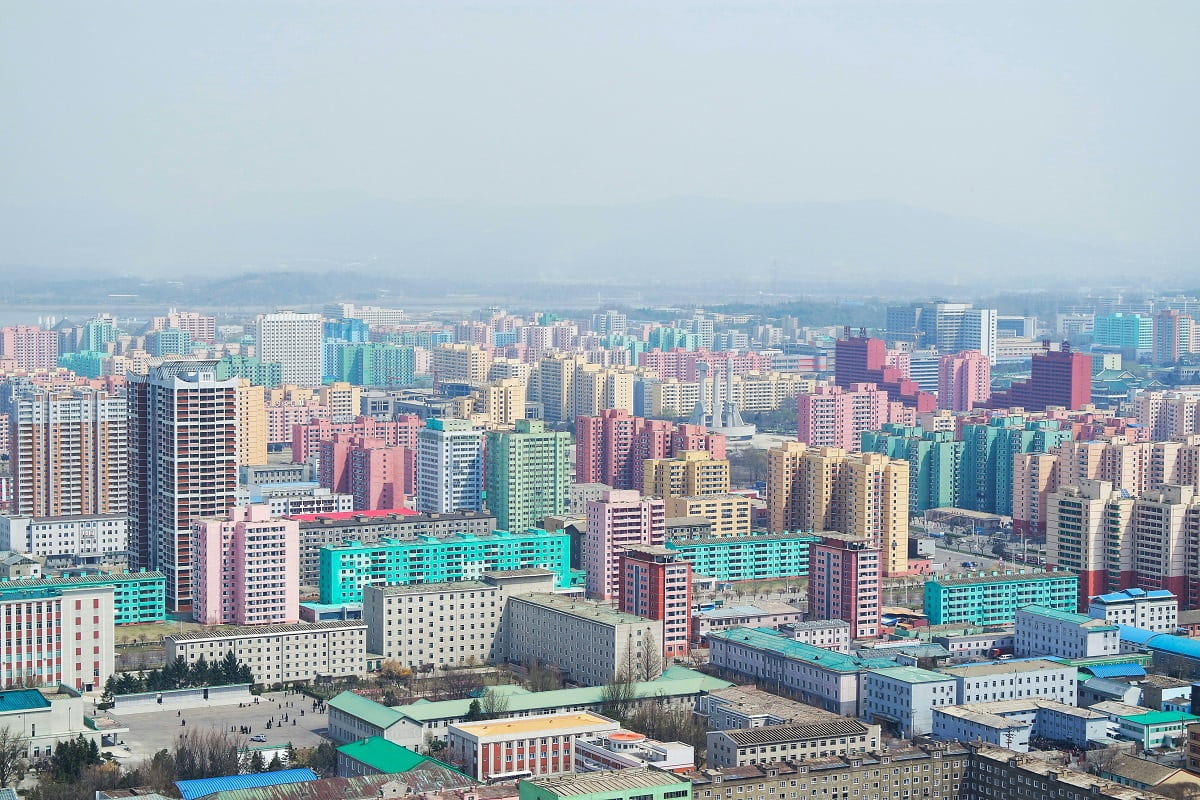North Korean defectors are again in the spotlight. Earlier this year, South Korea reported that the number of North Korean defectors nearly tripled in 2023. The number of “elite defectors”, who belonged to North Korea’s highest social class and held high-ranking positions within its government before defection, also increased. According to Seoul’s Unification Ministry, ten elite defectors went to South Korea in 2023, more than under the previous Moon Jae-in administration. Among the defectors was a prominent North Korean diplomat stationed in Cuba, the highest-ranking diplomat-turned-defector since 2016.
The South’s Yoon Suk-yeol government is welcoming and even supporting the trend. In July, it inaugurated the North Korean Defectors’ Day to condemn Pyongyang’s human rights violations and highlight defectors’ desire for freedom. In his 15 August Liberation Day speech, Yoon emphasised his “freedom-based unification” formula, that Seoul should continue its radio and TV broadcasts into North Korea to help the North Korean people see through the “false propaganda” of the regime. Yoon is assisting North Korean elite defectors to settle into South Korea by providing them with government jobs and payments for valuable information about the North Korean government. The Moon administration hesitated to hire these elite defectors due to potential negative consequences for inter-Korean ties.
By politicising these defections in a democracy-versus-autocracy binary, the Yoon administration is exaggerating the impact of the defections on North Korean regime stability and ignoring other causes of defection.
Yoon’s support for North Korean defectors generally reflects his hawkish policy towards the North. Recent interviews with these elite defectors follow a similar script – that they defected out of their contempt for the Kim regime’s suppression of civil liberties and their desire for freedom in the South. The increasing number of elite defectors has prompted several North Korea watchers to speculate that the North Korean government under Kim Jong-un is being hollowed out, with far more elite defections under Kim than under his predecessors. It is not surprising that a conservative South Korean administration is highlighting these cases to support its unification by absorption vision in case North Korea collapses. Yoon’s freedom-based unification formula leaves no space for the North Korean government.
However, by politicising these defections in a democracy-versus-autocracy binary, the Yoon administration is exaggerating the impact of the defections on North Korean regime stability and ignoring other causes of defection.
First, it is not the absolute number of elite defectors that has increased, but their relative share of total defectors. This is because fewer North Korean commoners have been able to escape due to strict pandemic border controls. There were as many elite defectors in 2019 as in 2023. Diplomats enjoy a higher chance of successful defection than commoners because they are in a better position to do so. The bias in the number of elite defections may give the wrong impression that there is widespread distrust in the North Korean government and more elite defections are in the offing.

However, it is important to note that these diplomats are not elite enough for their defections to have any significant impact on regime stability. North Korean diplomats belong to the core class and the regime trusts them enough to station them abroad, but they do not belong to the top government decision-making bodies, such as the Politburo or the Central Committee of the Workers’ Party. To date, the highest ranking North Korean defector is still Hwang Jang-yop, former secretary of the Central Committee of the Workers’ Party, who escaped to the South in 1997. Even then, Hwang’s defection did not lead to a regime collapse, despite North Korea having to simultaneously deal with a massive famine that killed more than one million people.
Diplomats can defect for reasons unrelated to regime stability. North Korean diplomats are under immense pressure to generate cash for the government, even by illicit means. The ones who fail can be dismissed from their post and sent back home with little chance of being sent overseas again. Intra-embassy disputes over funds and sales could lead to defection out of fear of political retaliation. The tightening of international sanctions on North Korea, which contributed to a huge number of embassy closures last year, underlines financial hardship as a main cause of defection. A hypothetical structural crisis in the North Korean government would have caused an exodus of elite defectors as the embassies closed, not a few defectors. This suggests the motive for defection is individual, not structural.
Scepticism about the motivations and narratives of North Korean defectors should not obscure the fact that they do struggle to adapt to South Korean society.
However, it is possible that defecting North Korean diplomats could be downplaying the financial motivation for their defection, emphasising their distrust of North Korea’s oppression, and praising South Korea’s democracy to seek more sympathy and support from Seoul. This type of exaggeration is not unheard of. With so little information coming out of North Korea, these defectors’ stories can allow for an illogical extrapolation from personal financial hardship to regime instability. More importantly, because these defectors come from the elite class, their stories carry more weight than a common defector’s.
Scepticism about the motivations and narratives of North Korean defectors should not obscure the fact that they do struggle to adapt to South Korean society. The North Korean Defectors’ Day is a step in the right direction, but politicising it to paint a picture of a pending North Korean collapse is counterproductive and may mean defectors need to change their narratives to conform to Seoul’s expectations. Recent studies even show that new North Korean defectors are more fond of Kim Jong-un and socialism than past defectors, contradicting the South Korean narrative that the Kim regime is in a legitimacy crisis. As North Korea reopens its border, the number of defections will increase. It is important not to politicise their cause.

